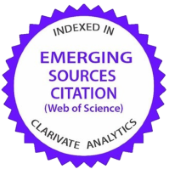Cultured Meat Consumer Acceptance: Addressing Issues of Eco-Emotions
DOI:
https://doi.org/10.29036/jots.v15i29.900Keywords:
Artificial meat, cultured meat, eco-anger, ecoanxiety, eco-depression, eco-emotion, social acceptabilityAbstract
Meat substitutes, in particular cultured meat, appear to be an effective way of combating climate change, ensuring human and animal welfare, and meeting the challenges of food security. In the face of the climate emergency, we need to speed up the decarbonization of local and national economies and curb populations’ negative emotional responses. Eco-emotions (such as fear) can indeed go so far as to cause disengagement from the environmental transition and hamper action. The aim of this article is to understand and predict, from the perspective of the extended theory of planned behaviour (TPB), (i) consumer intentions and (ii) the determinants of the adoption of cultured meat by introducing two important variables drawn from the literature on eco-emotions, i.e. eco-anger and eco-depression. The results show that, in addition to the traditional TPB variables (attitudes, subjective norms, perceived behavioural control), eco-depression has a significant effect on consumer intentions and the acceptability of cultured meat. This research can help to improve decision-making processes and to effectively predict intentions, acceptability, and purchasing behaviour with regard to cultured meat. Organizations will be able to use this model to propose differentiated marketing techniques, optimize marketing campaigns, and improve citizen engagement.
Downloads
Downloads
Published
Issue
Section
License
Copyright (c) 2024 Journal of Tourism and Services

This work is licensed under a Creative Commons Attribution-NonCommercial-NoDerivatives 4.0 International License.
Journal of Tourism and Services (ISSN 1804-5650) is published by the Center for International Scientific Research of VŠO and VŠPP in cooperation with the following partners:
- Juraj Dobrila University of Pula, Faculty of Economics and Tourism, Croatia
- School of Business and Administration of the Polytechnic Institute of Setúbal, Portugal
- Szent István University, Faculty of Economics and Social Sciences, Hungary
- Pan-European University, Faculty of Business, Prague, Czech Republic
- Pan-European University, Faculty of Entrepreneurship and Law, Prague, Czech Republic
- University of Debrecen Faculty of Economics and Business, Hungary
- University of Zilina, Faculty of Operation and Economics of Transport and Communications, Slovakia
The publisher provides a free access policy to the Journal of Tourism and Services.





